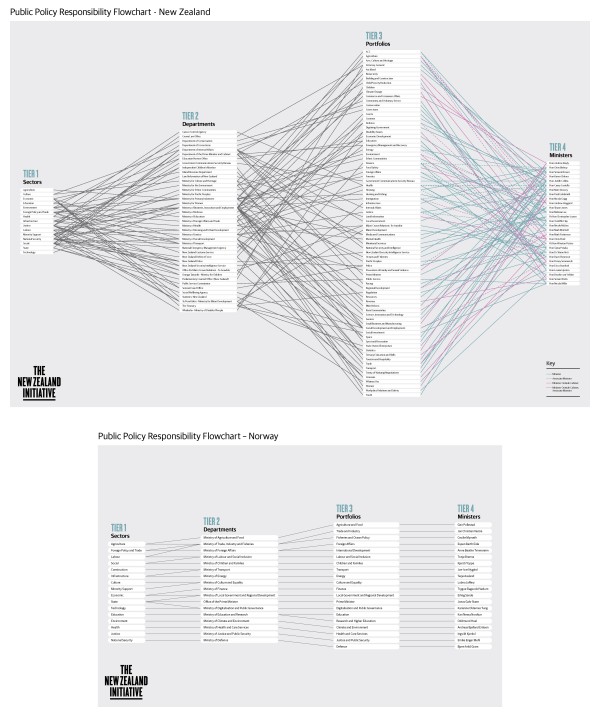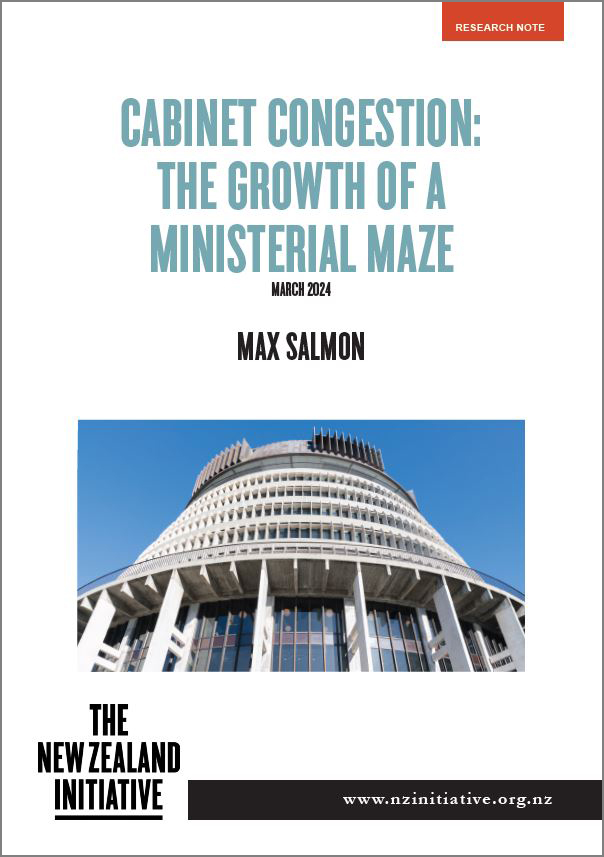New Zealand’s Executive Branch has grown to an abnormal size. The number of departments, portfolios, and ministers likely causes a suite of coordination, policy drift and resource management problems.
New Zealand relies on the Executive for everything from education to roads. This report’s research, alongside the academic literature, suggests size and complexity are severely limiting the optimal performance of this branch of Government.
The report finds political incentives appear to have grown this body to an abnormal size, and bureaucratic factors appear to prevent its reduction. The result is a tragically tangled and inefficient system.
“Our Executive now has 44% more ministers, nearly triple the number of portfolios, and one and a half times as many departments as comparable nations,” says Max Salmon, Research Fellow at the New Zealand Initiative.
“Ministers are stretched too thin across multiple portfolios which are frequently comically unrelated to each other. That the Minister for Seniors and the Minister for Customs are the same person is concerning. That another Minister holds no less than 7 portfolios is even more so.”
The report finds inefficiencies of three different kinds. Those associated with portfolios, departments and ministers. As a whole, they paint an alarming picture of a serious set of issues within the apex of our government.
The report emphasises the need for further research, also highlighting that a lack of academic, journalistic or political interest in the area has led to this pressing issue failing to receive the attention it deserves.
The report recommends several initial solutions:
- Portfolios and departments should be strictly streamlined, reducing numbers, and focusing attention on sectors.
- Implementation of official coordination structures for ministers involved in overlapping sectors.
- Introducing a limited number of ministers who are not members of parliament.
Listen to our podcast on the report here:
Watch the webinar for the report here:
Watch Max's interview with NBR here:
You can also listen to further discussion of the paper on NewstalkZB here and here.




